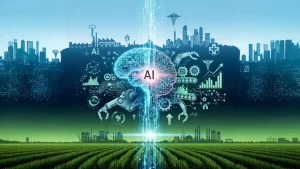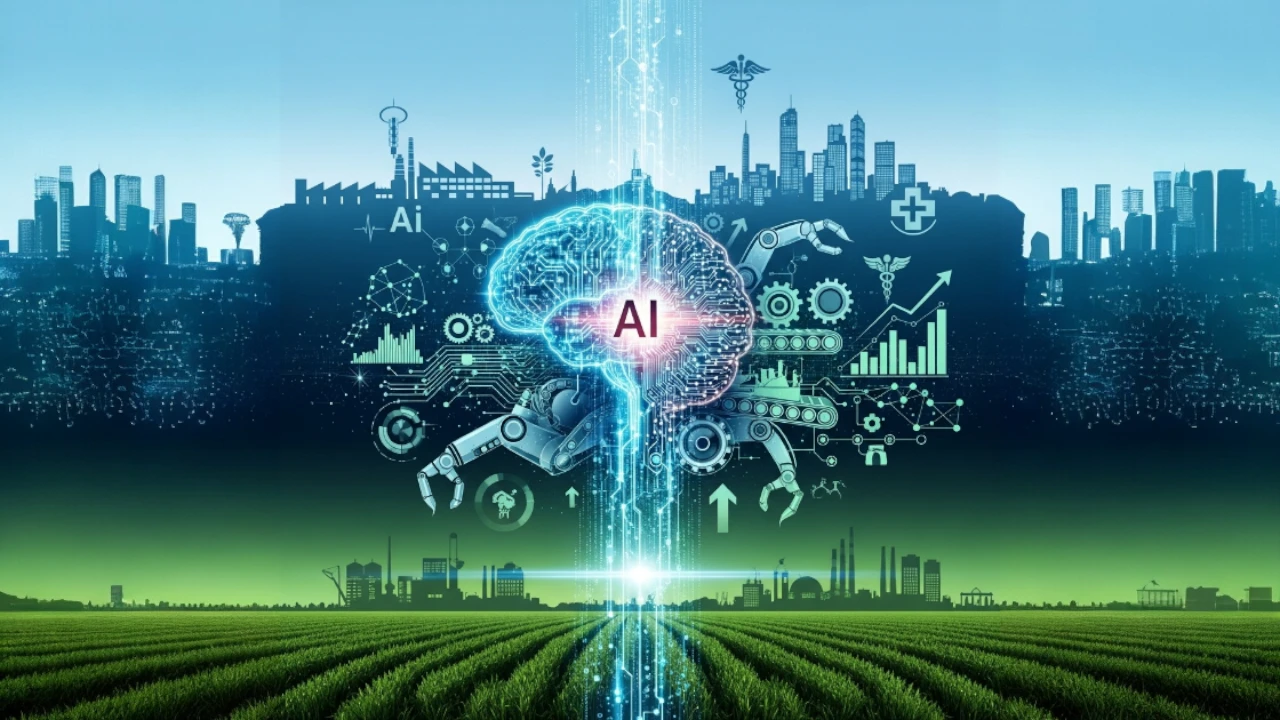In today’s fast-paced, data-driven world, businesses are constantly seeking innovative ways to gain a competitive edge. One of the most transformative technologies driving this change is artificial intelligence (AI). From automating repetitive tasks to predicting market trends, AI is revolutionizing how companies operate, innovate, and connect with customers. In this article, we’ll explore how AI is helping businesses outperform competitors, offering actionable insights and real-world examples to illustrate its impact.
Table of Contents
Toggle1. The Role of AI in Modern Business Strategy
AI is no longer a futuristic concept—it’s a practical tool that businesses are leveraging to stay ahead. By analyzing vast amounts of data, AI provides actionable insights that drive smarter decision-making. Companies that embrace AI are better equipped to anticipate market shifts, optimize operations, and deliver exceptional customer experiences.
2. Enhancing Customer Experiences with AI
2.1 Personalized Marketing Campaigns
AI-powered tools analyze customer behavior, preferences, and purchase history to create hyper-personalized marketing campaigns. For example, e-commerce giants like Amazon use AI to recommend products tailored to individual users, significantly boosting conversion rates.
2.2 Chatbots and Virtual Assistants
AI-driven chatbots provide instant, 24/7 customer support, resolving queries and improving satisfaction. These tools not only reduce operational costs but also ensure customers feel valued and heard.
3. Streamlining Operations Through Automation
3.1 Automating Repetitive Tasks
AI automates mundane tasks such as data entry, inventory management, and payroll processing. This allows employees to focus on higher-value activities, increasing productivity and reducing errors.
3.2 Predictive Maintenance in Manufacturing
In industries like manufacturing, AI predicts equipment failures before they occur, minimizing downtime and saving costs. Companies like General Electric use AI to monitor machinery and schedule maintenance proactively.
4. Data-Driven Decision Making
4.1 Advanced Analytics and Insights
AI processes large datasets to uncover patterns and trends that humans might miss. Retailers, for instance, use AI to forecast demand, optimize pricing, and manage inventory more effectively.
4.2 Competitive Intelligence
AI tools analyze competitors’ strategies, pricing, and customer feedback, helping businesses identify opportunities and threats in real time.
5. AI in Product Development and Innovation
5.1 Accelerating Research and Development
AI speeds up R&D by simulating scenarios, testing hypotheses, and identifying potential breakthroughs. Pharmaceutical companies, for example, use AI to discover new drugs faster and at a lower cost.
5.2 Enhancing Product Design
AI analyzes customer feedback and market trends to guide product design, ensuring new offerings meet consumer needs and preferences.
6. Improving Supply Chain Efficiency
6.1 Demand Forecasting
AI predicts demand fluctuations, enabling businesses to optimize inventory levels and reduce waste. This is particularly valuable in industries like retail and food production.
6.2 Route Optimization
Logistics companies use AI to optimize delivery routes, reducing fuel costs and improving delivery times.
7. AI-Powered Talent Management
7.1 Recruitment and Hiring
AI streamlines recruitment by analyzing resumes, conducting initial interviews, and identifying the best candidates. This reduces hiring bias and ensures a better fit for the role.
7.2 Employee Engagement and Retention
AI tools monitor employee satisfaction and predict turnover risks, allowing companies to address issues before they escalate.
8. Strengthening Cybersecurity
AI detects and responds to cyber threats in real time, protecting sensitive data and ensuring business continuity. Financial institutions, in particular, rely on AI to prevent fraud and secure transactions.
9. Real-World Examples of AI Driving Business Success
- Netflix: Uses AI to recommend content, keeping users engaged and reducing churn.
- Starbucks: Leverages AI to personalize offers and optimize store locations.
- Walmart: Employs AI for inventory management and supply chain optimization.
10. Challenges and Ethical Considerations
While AI offers immense benefits, businesses must address challenges such as data privacy, algorithmic bias, and the need for skilled professionals. Ethical AI practices are crucial to building trust and ensuring long-term success.
FAQs
1. How does AI improve customer retention?
AI analyzes customer behavior to identify at-risk clients and deliver personalized interventions, such as tailored offers or proactive support.
2. Can small businesses benefit from AI?
Absolutely. Affordable AI tools are available for small businesses, helping them automate tasks, analyze data, and compete with larger players.
3. What industries benefit the most from AI?
Industries like retail, healthcare, finance, and manufacturing see significant benefits due to AI’s ability to optimize operations and enhance decision-making.
4. How does AI impact job roles?
While AI automates repetitive tasks, it also creates new roles in AI development, data analysis, and strategy, requiring upskilling and adaptability.
5. Is AI expensive to implement?
Costs vary, but many AI solutions are scalable and offer a strong return on investment through increased efficiency and revenue growth.
Conclusion
AI is no longer a luxury—it’s a necessity for businesses aiming to outperform competitors. By enhancing customer experiences, streamlining operations, and enabling data-driven decisions, AI empowers companies to innovate and grow in ways previously unimaginable. However, success with AI requires a strategic approach, ethical considerations, and a commitment to continuous learning.
If you’re ready to take your business to the next level, now is the time to explore how AI can transform your operations and drive sustainable growth. Start small, measure results, and scale your efforts to stay ahead in an increasingly competitive landscape.























